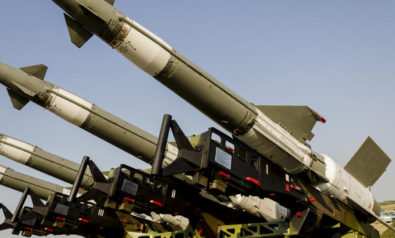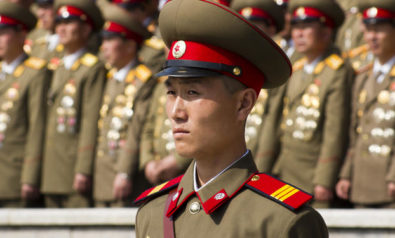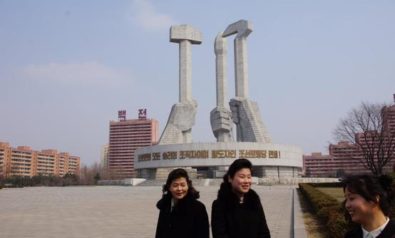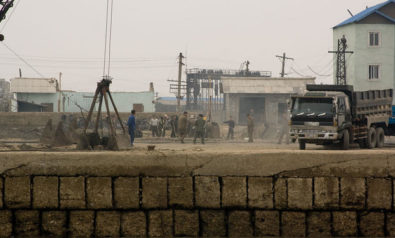It is time for a change in Washington’s “strategic patience” policy on North Korea.
The Obama administration’s strategic patience policy on North Korea is a zero-sum game. This concept focuses on US policy over Pyongyang’s nuclear and ballistic missile program. As an actual definition, “strategic patience” is simple: it means inaction. Strategic patience holds that negotiations with North Korea should be halted until the country provides concrete evidence of its commitment toward nuclear disarmament. In other words, the US remains steadfast in merely placing sanctions on North Korea until it folds.
In such a precarious situation with regard to US-North Korea relations, has the Obama administration ever had the upper hand? Based on past history, the more sanctions imposed by US, the more advancements North Korea makes on its nuclear programs.
From 2001-2005, the Bush administration reiterated the same preconditions during negotiations with North Korea by calling for the “complete, verifiable [and] irreversible dismantlement” of its nuclear program. However, talks continued to stall and then failed. Even so, blame does not solely lie on the US. During negotiations, North Korea produced plutonium for several nuclear weapons and continued developing its facilities for arms containing weapons-grade uranium. In 2009, during the Six Party Talks that stalled, North Korea launched its second nuclear test. Hillary Clinton, then-secretary of state, declared: “Current sanctions will not be relaxed until Pyongyang takes verifiable, irreversible steps toward complete denuclearization.” Clinton reaffirmed US policy of strategic patience like that of the Bush administration.
But what was the result? North Korea launched its third nuclear test and even a satellite, demonstrating improvements in its ballistic missiles. So far, the Obama administration has failed to stop Pyongyang’s nuclear program. Since President Barack Obama entered office, North Korea has conducted two underground nuclear tests and launched several long-range ballistic rockets. This is the only outcome of the strategic patience policy.
Indeed, the policy is not a practical one. North Korea prefers to engage in rhetorical negotiations and declarations, and take advantage of US policy that is focused on sanctions and condemnation. The Obama administration argues that strategic patience with North Korea is inevitable due to the latter’s policies, which focus on a cycle of provocation and reward. Washington will stand firm in its policy until North Korea takes verifiable and irreversible steps toward complete denuclearization.
However, is this a zero-sum game? What would the US gain from its stance? Covertly, North Korea has produced improved Weapons of Mass Destruction (WMDs), including an Intercontinental Ballistic Missile (ICBM) equipped with a nuclear warhead. This is the reality of the zero-sum game, even if the US fails to recognize the futility of its efforts.
No Negotiation, No Progress
So why is the US reluctant to change its policy on North Korea? The Obama administration states that it is crucial to shift its resources to Asia in order to protect national interests. If the US government considers its engagement with North Korea as a balancing strategy to contain China, what would this mean for American national interests? What is the best way to reduce Beijing’s influence, which traditionally supports North Korea?
The sanctions policy on North Korea will only lead to further provocations that undermine US security interests and those of Washington’s allies, including South Korea.
In the Cold War, US national interests were to block the extension of the Soviet Union, which was seen as foreign policy focused on ideology rather than economics. But now the economic advantage should be the main priority. With the potential for a successful and comprehensive Trans-Pacific Partnership, the US has substantial economic influence in the Asia Pacific. With this in mind, is simply blocking and sanctioning North Korea beneficial for Washington?
Even if the amount of US weapons sales were to rise, growing tensions would not compensate for the cost in foreign policy. For example, in 2013, the amount of US arms exports to South, West and Central Asia rose up to $8.8 billion, but the country’s defense budget in the region reached $282 billion. This increase was driven primarily by India’s imports rising by $1.8 billion, with many additional weapons coming from the US, including the Boeing P-8 Poseidon maritime surveillance aircraft. Additionally, the Stockholm International Peace Research Institute reports: “Military expenditure in Asia and Oceania increased by 3.6 percent in 2013, to reach $407 billion.”
So, why it is impossible for the Obama administration to consider North Korea as a partner? Geopolitics is an amoral enterprise. The normalization of relations between Washington and Pyongyang will not only help reduce the influence of China, but also develop an advantage for the US, including access to raw materials in North Korea at a low cost. Recent discoveries suggest that North Korea might possess six times the amount of rare earth elements as China.
Intention and Goal
North Korea’s intention with its provocative actions is very simple. In the short-run, Pyongyang plans to halt economic sanctions imposed by the US, but in the long-term it wants to sign a peace treaty to replace the armistice that ended the Korean War in 1953. Moreover, North Korea aspires toward economic assistance and free trade with the West, without any sanctions. In other words, it wants to guarantee the country’s security and normalize relations with Washington.
Consequently, the goal of America’s strategic patience policy is not only to put sanctions on North Korea, but also the denuclearization and nonproliferation of Pyongyang’s WMD technologies. So, there will be a “good bargaining chip” between the US and North Korea, if both parties are committed to talks. If an agreement satisfies both countries, the signing of a peace treaty would be a good starting point.
Sanctions alone will never solve any international disagreement as can be seen with Iran and Cuba. The sanctions policy on North Korea will only lead to further provocations that undermine US security interests and those of Washington’s allies, including South Korea. The policy only refers to the growing nuclear threat and escalating danger of exporting nuclear technologies, but it does not take US economic interests into account. Therefore, negotiating with Pyongyang will not only build trust, but it will also help solve issues that have plagued the Korean Peninsula.
If there are no talks, there will be nothing to achieve. Negotiations will not only help reach the objective of denuclearization and reduce the threat posed by a nuclear-armed North Korea. Rather, it will also calm tensions and prevent future provocation by an isolated Pyongyang. Now is the time for the Obama administration to turn its strategic patience into “strategic negotiation.”
The views expressed in this article are the author’s own and do not necessarily reflect Fair Observer’s editorial policy.
Support Fair Observer
We rely on your support for our independence, diversity and quality.
For more than 10 years, Fair Observer has been free, fair and independent. No billionaire owns us, no advertisers control us. We are a reader-supported nonprofit. Unlike many other publications, we keep our content free for readers regardless of where they live or whether they can afford to pay. We have no paywalls and no ads.
In the post-truth era of fake news, echo chambers and filter bubbles, we publish a plurality of perspectives from around the world. Anyone can publish with us, but everyone goes through a rigorous editorial process. So, you get fact-checked, well-reasoned content instead of noise.
We publish 2,500+ voices from 90+ countries. We also conduct education and training programs
on subjects ranging from digital media and journalism to writing and critical thinking. This
doesn’t come cheap. Servers, editors, trainers and web developers cost
money.
Please consider supporting us on a regular basis as a recurring donor or a
sustaining member.
Will you support FO’s journalism?
We rely on your support for our independence, diversity and quality.














Comment